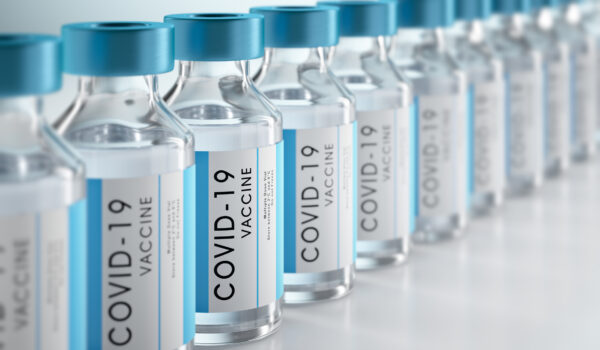
Merck is pulling out of the Covid-19 vaccine race.
The New Jersey-based drugmaker announced today it is putting a stop to the development of its two Covid-19 vaccine candidates, V590 and V591. The company made the decision after reviewing phase 1 clinical studies for the vaccines, which show that though they were generally well tolerated, the immune responses were inferior to those for other vaccines. Immune responses were also subpar compared with those seen after contracting and recovering from the disease.
“We are grateful to our collaborators who worked with us on these vaccine candidates and to the volunteers in the trials,” said Dr. Dean Y. Li, president of Merck Research Laboratories, in a news release. “We are resolute in our commitment to contribute to the global effort to relieve the burden of this pandemic on patients, healthcare systems and communities.”
Merck was working with the International AIDS Vaccine Initiative (IAVI), a nonprofit research organization, on vaccine candidate V590. The candidate was based on the recombinant vesicular stomatitis virus technology, which also forms the basis of Merck’s Ebola vaccine Ervebo. By contrast, Pfizer’s and Moderna’s vaccines that were the first two to received FDA’s emergency use authorization uses the mRNA technology. They show efficacy in the 90-plus-percentage range.
“These results are not the ones we hoped for, but we conduct studies in order to learn the answer to a question. In this case, the answer is clear: more work is needed,” Dr. Mark Feinberg, IAVI president and CEO, said in a separate news release.
The other candidate, V591, used a measles virus vector platform.

A Deep-dive Into Specialty Pharma
A specialty drug is a class of prescription medications used to treat complex, chronic or rare medical conditions. Although this classification was originally intended to define the treatment of rare, also termed “orphan” diseases, affecting fewer than 200,000 people in the US, more recently, specialty drugs have emerged as the cornerstone of treatment for chronic and complex diseases such as cancer, autoimmune conditions, diabetes, hepatitis C, and HIV/AIDS.
Results of the phase 1 studies for both vaccine candidates will be submitted for publication to a peer-reviewed journal.
Merck said it will now focus its coronavirus research strategy and production capabilities on advancing two therapeutic candidates, MK-4482 and MK-7110.
MK-4482 (molnupiravir) is an oral antiviral agent being developed in collaboration with Ridgeback Bio. It is currently being evaluated in phase 2/3 clinical trials in both the hospital and outpatient settings. The trials are slated to be completed by May.
MK-7110 is a recombinant fusion protein that modulates the inflammatory response to the novel coronavirus. Interim results from a phase 3 study showed the drug reduced the risk of death or respiratory failure in hospitalized patients with moderate to severe Covid-19 by more than 50%. Full study results are expected in the first quarter of this year.
Photo: peterschreiber.media, Getty Images












